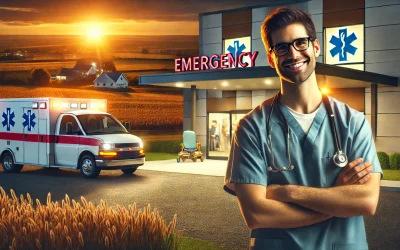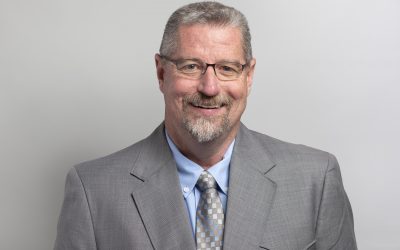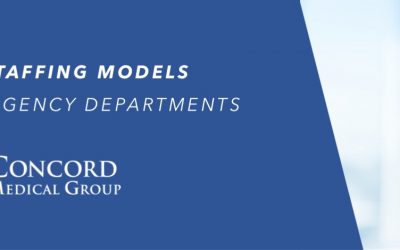A recent study revealed that more than 70% of emergency department (ED) doctors experience substantially more burnout than those in other medical occupations. Many professionals can agree that the long hours and unpredictability of shift work is the primary reason why ED physicians leave the profession. Such conditions can not only negatively impact the physician’s health, but also their patient’s health.
Dr. Pat Croskerry, a professor of emergency medicine at Dalhousie University, states “The complex of fatigue, sleep deprivation, and sleep debt is a significant contributor to diagnostic error.” He goes on to say that a sleep-deprived doctor experiences a 30% reduction in cognitive performance. Worse, it was found that Harvard interns, when working lengthy, tiring shifts, made close to six times as many serious diagnostic errors.
In the study of sleep, there is an approximate four-hour time interval referred to as the “anchor period”. This occurs roughly between 1 a.m. and 6 a.m., when your need for sleep is greatest – the time span that helps preserve the circadian rhythm of your body.
Modifying the Shifts
In 2001, Dr. Croskerry’s hospital ED switched from the standard shift schedules to what is called “casino shifts”. On these shifts, one physician might work from 10 p.m. to 4 a.m. and commence sleeping in the later part of the anchor period. One important aspect of the casino shifts is that they follow the pattern of the sun. For example, if you were getting off of work at 4 a.m. and make it home before the sun rises, you would sleep better. With an effective integration of shift selections, you would have a balanced schedule with some doctors taking the earlier shift and others taking the later one.
Dr. Croskerry’s group discovered that 80% of doctors preferred the casino shifts, and 60% of their families preferred them as well. As an added bonus of these shifts, ED’s have also experienced low turnover rates.
In a chemical plant in Germany, another strategy has been examined which is called a “fast-forward rotating system”. Although it does utilize 12-hour shifts, with transition times occurring at 6 a.m. and 6 p.m., each shift is followed by at least 24 hours off. The time off compensates the worker for his sleep loss. It should be noted that this schedule has not been tried in a hospital. For the many EDs that maintain the standard schedules, another approach is double-coverage. This involves two doctors being on duty, including the night shift. They are able to split the patient load and are compensated for working at night by having a couple of shifts taken off their overall schedule.
Tips for Night Shift Workers
Dr. Mallemat, assistant professor of emergency medicine at the University of Maryland Medical Center, recommends ED’s to keep the same light and noise levels at night as those utilized in the daytime.
For night time ED workers, Mallemat suggests:
- taking brief exercise breaks at work
- keeping your bedroom dark during morning sleep
- avoiding heavy foods and caffeine at the end of your shift
Concord Medical Group
As you’ve learned, sleep deprivation in the ED can lead to many negative affects. To combat this issue, proper scheduling is encouraged, such as the services provided by Concord Medical Group. Since Dr. Kyle Sheets established Concord in 2001, we have built our reputation on strategically placing quality medical providers in hospital EDs. With over 15 years of experience, 350 physicians, and 50 midlevels, we are confident that Concord has the resources to help hospitals be the leading patient care facility in their area, while also providing physicians the ability to confidently choose their schedules.
Being well aware of the negative ramifications of physician burnout to both the physician and the patient, make the wise choice and let our team work beside you 24/7 to ensure your health and business needs are being met.
More Posts
Empowering the Rural ED: Unlock Excellence in Your Emergency Department
Managing a rural ED is a complex challenge that requires strategy, innovation, and a relentless focus on both people and outcomes. For hospital executives and clinical leaders, success hinges on the ability to balance high-quality care, operational efficiency, and staff satisfaction. Here are some essential strategies to help you unlock excellence in your ED.
Concord Announces Dr. John Jones as Chief Medical Officer of Emergency Medicine
Concord Medical Group is extremely excited to announce that John Jones, MD has accepted the role of Chief Medical Officer of Emergency Medicine.
Creative Staffing Models for Rural Emergency Departments
Staffing an emergency department with the right providers is essential to deliver high quality care and keep costs under control. We have found that creative and custom staffing models are essential to driving care quality and boosting financial health in rural, low-volume emergency departments.






